Subscribe to our E-Letter!
Subscribe to our e-mail and stay up-to-date with news and resources from street vendors around the world.
We participated at the 113th International Labour Conference, the tripartite forum where international labour standards are negotiated between governments, workers and employers.
Accredited since 2004, StreetNet’s participation has always pushed for more inclusion of informal economy workers and it contributed to key discussions that broaden the understanding of collective bargaining and helped pioneer new concepts in the world of work such as own account workers (self-employed workers).
At the 113th Session of the International Labour Conference, the StreetNet delegation mainly followed two committees relevant for street and market vendors concerns: the General Discussion Committee on Promoting Transitions towards Formality and the Standard-Setting Committee on Biological Hazards. Our positions on both committees were clearly laid out by Martha García Santoyo, StreetNet International Council Member from Mexico, in her Plenary Speech in representation of StreetNet International.

The StreetNet delegation was composed by Vice-President Alberto Santana, Secretary Jamaluddin Ismaiylov, Member Auditors of the Executive Committee Lameck Kashiwa and Maya Gurung, International Council member Martha García Santoyo and from MUFIS (Malawi), Gladys Mponda, with International Coordinator Oksana Abboud and Communication Manager Margarida Teixeira.
We participated along with our allies from the International Alliance of Waste Pickers, International Domestic Workers Federation, HomeNet International and WIEGO, belonging to a fifty-plus person delegation that brought the voices of informal economy workers to the forefront.
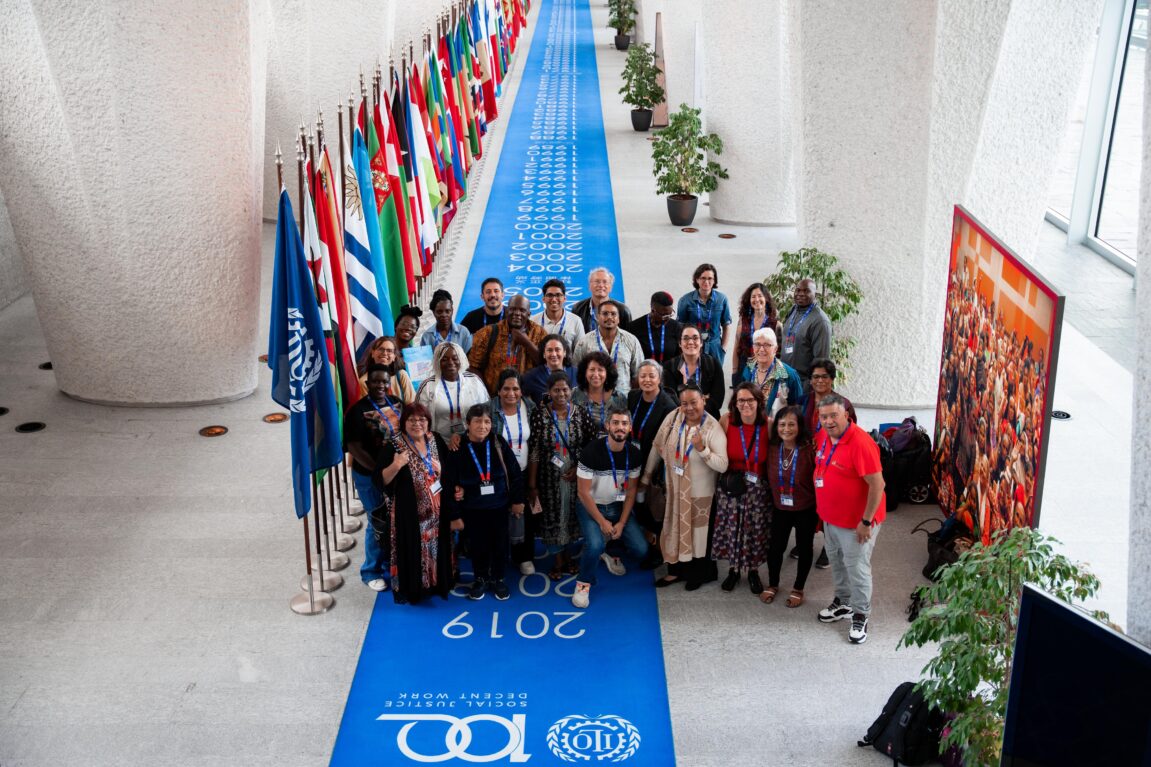
The General Discussion Committee on Promoting Transitions towards Formality was based on Report VI – Innovative approaches to addressing informality and promoting the transition to formality for decent work, and it follows previous discussions in 2002 and 2015, that led to the Resolution concerning decent work and the informal economy and the Recommendation 204 on Transition from the Informal to the Formal Economy
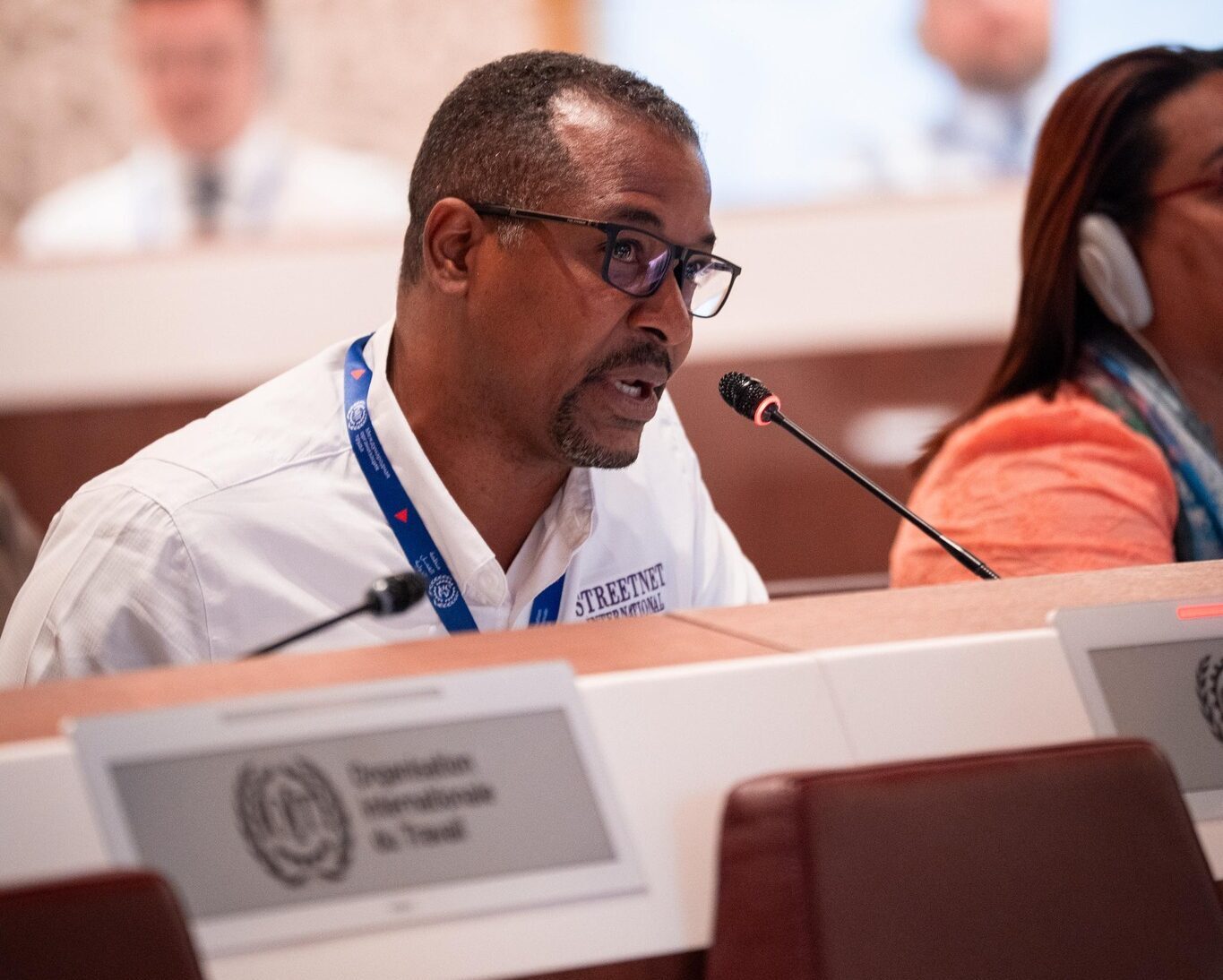
At the 113th Session of the International Labour Conference, the Committee adopted the Resolution concerning the General Discussion on Addressing Informality and Promoting the Transition to Formality for Decent Work, which highlighted, among other points:
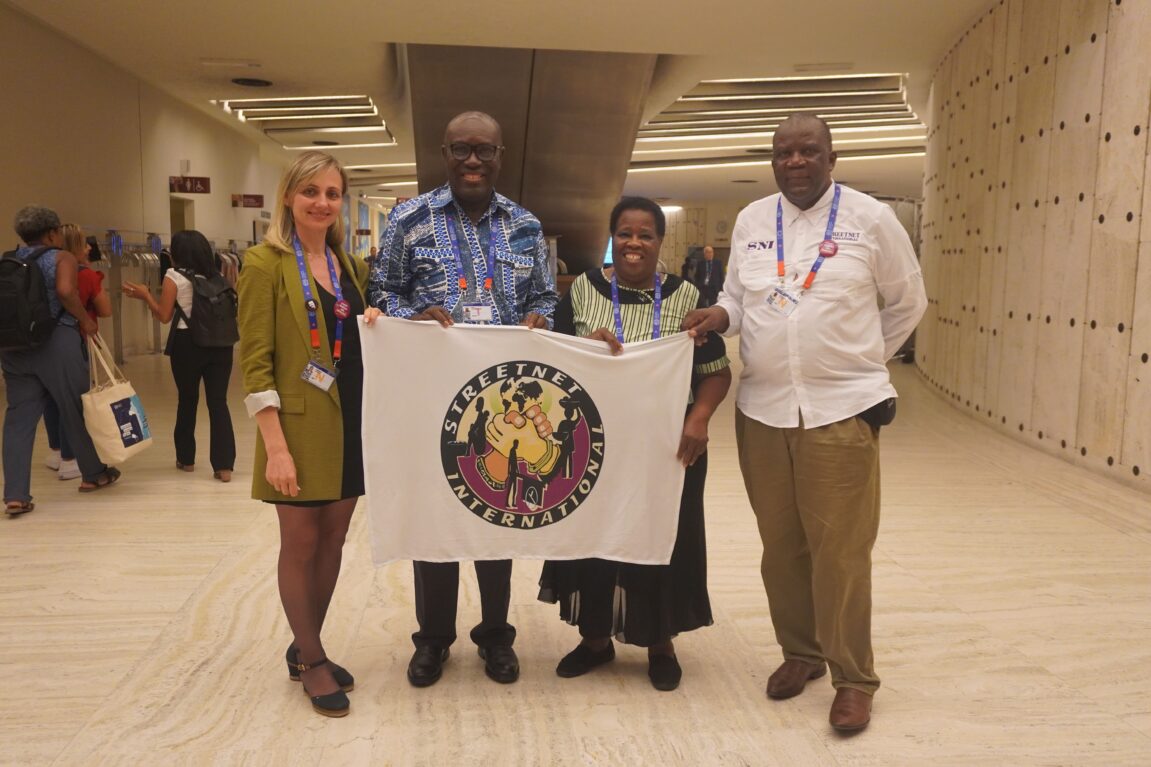
Following a first year of discussions at the 112th Session of the International Labour Conference, in 2025 delegates discussed and adopted a historical Convention 192 and Recommendation 209 concerning prevention and protection against biological hazards in the working environment. The StreetNet delegation closely followed the Committee in 2024 and 2025, understanding the importance of such an instrument for the working lives of street and market vendors working in public spaces with little to no protection against all sorts of biological hazards, as it lays out:
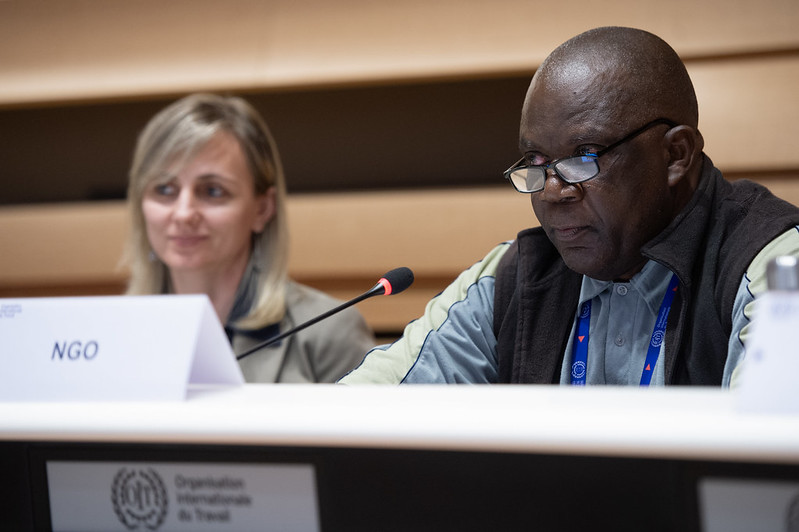
On June 7, 2025, StreetNet organized for the first time a side event to the International Labour Conference, to share the formalization we want and innovative approaches to transition from informality. The event took place at the Red Cross and Red Crescent Museum and was attended by allies and delegates to the ILC. We were honoured to have in our opening session esteemed guests such as Clair Ruppert, Deputy Director of ILO ACTRAV; Evelyn Astor Director of Economic and Social Policies at the International Trade Union Confederation (ITUC); Anthony Baah, the Workers’ Group Vice-Chair for the Committee on Promoting Transitions towards Formality, as well as Lucía Fernandez, Organization & Representation Programme Director at Women in Informal Employment: Globalizing and Organizing (WIEGO).
Our Vice-President Alberto Santana presented the StreetNet Position Paper on the formalization we want, followed by a panel discussion sharing best practices and research on street and market vendors, including a presentation of the heat stress insurance by SEWA and sharing findings of our joint research with Oxfam on the impact of climate change on street vendors in the ASEAN region and of our project Street Vendors’ Barometer with the Global Labour Institute.
The International Labour Conference is the biggest event in the world of work and an opportunity to engage and exchange experience with trade unionists across the globe. This year, we joined protests in solidarity with imprisoned trade unionist in Belarus, with workers affected by the war in Ukraine and we also participated in the parallel conference and demonstration “Gig Workers United: Reimagining Global Justice in the Era of AI and Emerging Platform Capitalism”.
We also connected with key partners, such as the ILO Cooperative, Social and Solidarity Economy Unit, headed by our long-time ally Simel Esim, and were received by the Brazilian Ministry of Labour along with other worker leaders of informal economy delegations.
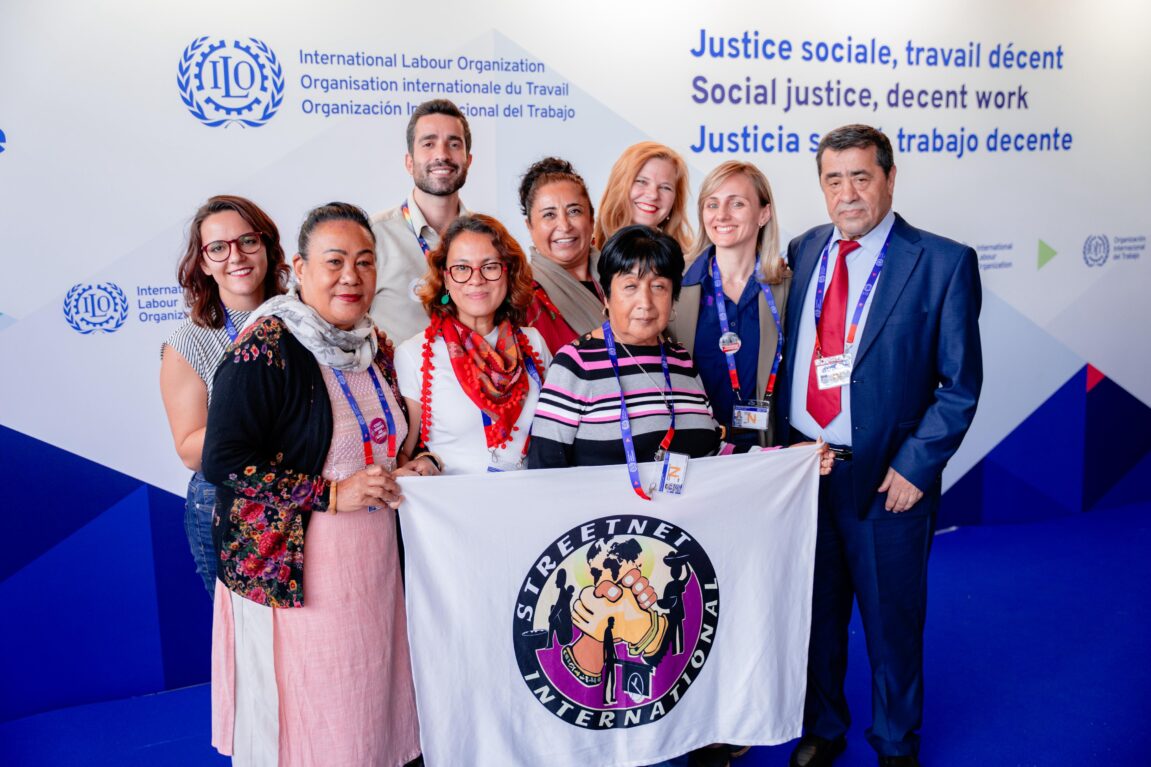
In 2026, a Convention on decent work in the platform economy will be discussed and hopefully adopted by delegates of the international labour conference. This discussion has the potential to transform and coin new concepts in the world of work, but it follows decades-long arguments about collective bargaining and the role of self-employed and own-account workers in tripartite structures. As digital technologies become ever more present, even among street and market vendors, it will certainly be a discussion that we will follow closely and ensure that no one is left behind.
Nothing for Us without Us!

By entering your personal data and clicking “Suscribe,” you agree that this form will be processed in accordance with our privacy policy. If you checked one of the boxes above, you also agree to receive updates from the StreetNet International about our work